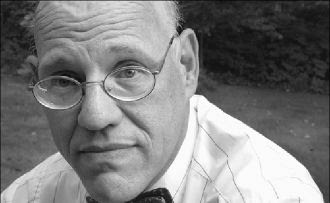he said (in order to fulfill the scripture),
'I thirst.'"
John 19:28
Many people are thirsty. Much of our environment is in trouble. Our planet is suffering. What should people do? What should nations do? What should Christians do?
Like the old song reminds us: “Problems, we’ve got problems; we’ve got stacks and stacks of problems…..”
Well, the world has problems, too. Big problems. These problems are bigger than one geographic area – bigger than a city. Larger than a county, state, or even a multi-state area. These problems affect our entire country, our continent, even the whole wide world. What kind of problems? Well, it’s getting warmer, our ice is melting, it is harder to grow stuff, more expensive to move stuff, and the wells are going dry, just to name a few concerns.
This set of problems is like a big mobile, like the one I hang over my patio every spring. It is wide, and has many arms, all delicately balanced, awaiting the slightest breeze. When the breeze comes, and it always does, the mobile swerves, dances, and swings around, always in harmony. But go ahead and pull on one of these arms, and something happens: Almost everything moves, somehow. Yes, it may be possible to affect only one other arm, but that’s very hard to do. Pull on one, and there is a widespread effect. One moves, and then another, and still another. Pretty soon, all are impacted. This movement spreads from one place to another, all around the system.
It’s sometime hard to understand – or even believe – that what you do in Maryland will have an effect on someone in North Dakota, or Somalia, or Venezuela, or even New Zealand. But it will; just like pulling one arm on the mobile.
What we do to preserve our environment will have an effect somewhere, sometime, somehow. These effects are often not easy to discern or to understand. Sometimes they are not economically logical But they usually make sense when you look at the bigger picture, and investigate just what will happen – or what will NOT happen if this action is undertaken. Education and imagination and boldness are all essential.
Sometimes what is done here means that something will NOT have to be done over there, leading to another movement in their arm of the mobile. If you don’t need the paper, maybe a tree in Canada won’t be cut down, and then the wood won’t have to be cut and sawed up. The pulp won’t have to be made into paper, and the wood and the paper won’t have to be shipped thousands of miles. Less energy will be needed, so maybe the electricity generating station won’t need to be started up today, with less coal being burned and less pollution being expelled into the sky. Maybe. Perhaps if it isn’t quite as warm in Nigeria today, someone will not have to buy a coat, and can use that money instead on a goat, which will give milk to his family for years to come. Maybe. Maybe if the coal consumption falls below the “magic level,” a new mine won’t have to be dug. Maybe. All of these are little slivers of “maybes”, but lots of them add up to something significant. Absolutely.
The Christian way does not do things any old way; it seeks to do things “the right way.” We see ourselves as stewards, not just for our immediate relatives, but for the rest of the world, as well as for those who will be future inhabitants. What better way to be “right” than to try to leave things better off than they were when we found them. This is what sustainability is all about. We should not just do things to benefit ourselves, but to also benefit others. The best way to ensure this sustainability is to be careful and judicious in our use of our resources. Using them wisely will mean that there will be more to “go around” and that there will be more available in the future. One of the most exciting and important uses for our modern technology is to allow this wise use to become a way of our lives. We can use less, and we can use things better – things that can be used again, and things that can be easily replaced.
It is amazing how inter-connected we are in “this fragile Earth, our island home.” That is to be discussed next month, when I turn to MDG 8, which is “Create a Global Partnership for Development.”
John Miers is from Bethesda, Maryland, where he was employed at the National Institutes of Health from 1968 to 2005. He serves on the board of St. Luke’s House, a halfway house for persons recovering from mental illness and also serves as Jubilee Officer for the Diocese of Washington. He was a member of National Commission on Science, Technology and Faith for the Episcopal Church and is active in his local church, where he is in the choir, worship committee, pastoral care committee, and the prayer team, and he also visits patients in a local hospital on behalf of the Chaplain.












